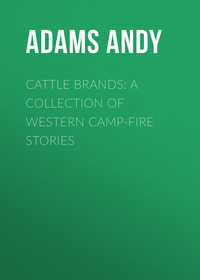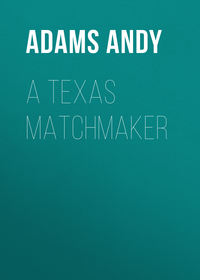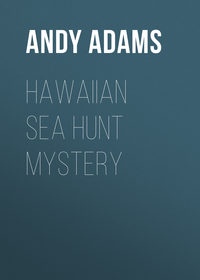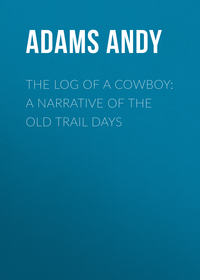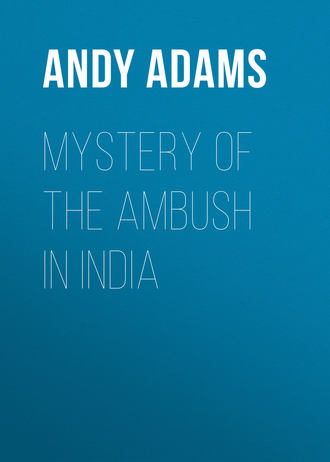 полная версия
полная версияMystery of the Ambush in India
“I suppose any Sikh students will be wearing their native garb, too,” commented Biff, “like the railroad guards on the train. So don’t let them spot me for a phony the way that man with the fake beard did on the Howrah bus.”
“Funny thing,” said Chandra, “I keep thinking about him every now and then, I don’t know just why. But don’t worry. Kamuka and I will talk to people so they won’t bother you.”
The bus tickets were simply cards that said Student in English and its equivalent in Hindi characters. They were accepted without question, and the boys took seats well back in the bus, which was nearly full when it started. All was fine until they stopped at a building where Biff looked up and saw a flag with three vertical stripes – red, white, and green.
“You’ve made a mistake, Chandra,” Biff groaned. “This can’t be the American Embassy. That’s not the United States flag.”
“It must be,” argued Chandra. “Lots of countries change their flags. Maybe your country changes its flag, too.”
“No, we don’t change the United States flag.”
From the bus window, Biff saw the flag flutter slightly, and now he noticed the emblem of an eagle on the white stripe.
“That’s the Mexican flag,” exclaimed Biff. As a sudden thought struck him, he asked, “Just what did that list say, Chandra?”
“It said students would pay visit to the embassy of the United States of – of – ”
“The United States of Mexico!”
“Yes, that was it.”
“It’s my fault, Chandra,” conceded Biff. “I forgot that Mexico is officially known as the United States of Mexico. I should have told you the United States of America. Then you’d have checked on the American Embassy.” He turned to Kamuka. “Dumb of me, wasn’t it?”
“Maybe I was dumb, too,” returned Kamuka. “If I had told Chandra to look for United States of Brazil, he would have brought us to the Brazilian Embassy. I could tell our story there.”
“You’re right, Kamuka,” acknowledged Biff. “We had two chances out of three and we missed. Well, we can’t sit here. We will have to follow the crowd.” Follow the crowd they did. As the last three off the bus, Biff and his companions tagged on into the Mexican Embassy and slid into a rear corner of the reception room where the students were seated. Members of the Mexican diplomatic corps proceeded to hold open forum with the students of New India, exchanging views on their respective countries. After an hour’s session was completed, the students started out, shaking hands with the Embassy staff as they went.
Again, Biff and his companions held back. They were able to ease along behind the students, who were so interested in exchanging their own views that they did not notice the dragging trio. Biff particularly, was glad to avoid the handshakes. The diplomats showed interest in a few genuine Sikh students, and Biff was afraid he would be asked embarrassing questions.
There was just one greeter they could not avoid. Outside the reception room, a Mexican youth of about Biff’s age had come up to shake hands with the students and was chatting briefly with them. Fortunately, his back was partly turned, so Biff saw a way to avoid him.
“You shake hands with him first, Kamuka,” Biff whispered, “but keep moving or he may guess that you are a Brazilian. You crowd in fast, Chandra, and keep him talking while I slide by – ”
They had reached the youth by then, and Kamuka’s handshake was over too quickly. Chandra, caught off stride, could not think what to say, so the young Mexican politely bowed him on with a brief shake; then turned with perfect poise to meet the last departing visitor, Biff.
The Mexican’s expression was momentarily quizzical as he studied the face beneath the Sikh turban. Chandra and Kamuka, glancing back, were sure Biff was getting by with his disguise when, to their horror, Biff himself gave the game away. As though suddenly gone crazy, Biff flung away his turban, sprang forward, grabbed the Mexican boy’s shoulders, and began shaking the poise right out of him.
The surprised youth gasped and grabbed at Biff as if in self-defense. Chandra and Kamuka turned to ward off any students who might come back to mix in the fray, only to see that they were all alone. That was when they heard Biff shout:
“Mike Arista!”
Then Chandra and Kamuka realized that it wasn’t a fight at all, but just a genuine, heartfelt form of mutual recognition, as the Mexican boy exclaimed:
“Biff Brewster!”
XIII
Biff’s Mission
The excitement of the meeting over, Biff realized that introductions were in order. He turned to Chandra and Kamuka.
“This is Miguel Arista – Mike to us,” Biff said. “He and I met in Mexico, where we went hunting for a lost Aztec treasure. We had some tough adventures together.” Biff turned to Mike.
“This is Kamuka,” Biff continued. “I told you once about the trip that I took up the Amazon with him. And this is Chandra, the newest member of the team. He steered us through a lot of trouble from Calcutta to New Delhi.”
“And I am glad he did,” returned Mike. “We’ve been watching for you everywhere, that is, for you and Kamuka, Biff. We hadn’t heard about Chandra. We alerted the American and Brazilian Embassies in case you turned up there. So, of all things, you walked into the Mexican Embassy, the last place we expected to see you. How did that happen?”
“That,” replied Biff with a smile, “was Chandra’s idea.”
“It looks like I picked the right United States,” put in Chandra. He turned to Biff and Kamuka. “You had chance number one and two. That gave me chance number three. I hit it right.”
“You sure did,” Biff agreed. He turned to Mike. “But how do you come to be in India? How do you know about all this?”
“You remember my uncle, the judge in Mexico City?”
“Of course.”
“I came here with him on a visit, and we happened to meet your father. My uncle can tell you about it, better than I can.” Mike paused a moment, then asked: “Do you have the ruby?”
For answer, Biff looked around and saw that he and his friends were alone. Then he brought out the priceless packet, opened it, and displayed the Light of the Lama. It took Mike’s breath away. Never before, perhaps, had the rare gem flashed more vividly, more dramatically, than at that moment. That was all Mike needed to see.
“Put it away,” he said. “We’ll go over to my uncle’s hotel and talk to him.”
Mike arranged for a cab, and they went to the hotel. There they met Judge Felix Arista, a quiet man with a white beard and flowing hair that gave him a very austere expression. But the kindly welcome that he gave to Biff put Chandra and Kamuka completely at their ease.
Then Judge Arista went further. He spoke to Kamuka in Portuguese, then to Chandra in Hindi, so fluently that both boys were quite overwhelmed. Judge Arista also assured Biff that all was well with his father, the last they had heard from him. Next, Judge Arista introduced a middle-aged man of military bearing named Colonel Gorak, who evidently held some key position with the government of India. Both were keenly interested in the ruby when Biff produced it. Then Judge Arista turned to the boys and said, “Tell us all that has happened.”
Though Biff was eager to hear more about his father, he realized that Judge Arista was following proper procedure – learning the facts so that he and Colonel Gorak could weigh them. Biff related the events from the time the Northern Star had docked in Calcutta. Judge Arista encouraged Kamuka and Chandra to add their impressions. Chandra, especially, came in for questioning regarding Jinnah Jad, Diwan Chand, and Barma Shah.
All three boys had much to say about Barma Shah and their adventures with him, including how he had saved Biff’s life during the tiger hunt and had later responded to Biff’s call when a thug had tried to steal the ruby at the dak bungalow. Judge Arista finally turned to Colonel Gorak and said:
“I am sure that we can trust these other boys as well as Biff. So I think they should all hear what you have to tell him about Señor Brewster.”
Colonel Gorak bowed acknowledgment, then spoke to Biff in an even, methodical tone.
“Your father came here to India to open some old gold mines,” related Colonel Gorak. “We were hopeful that investors would supply money to work them. Among these mines were some that once belonged to the Rajah of Bildapore, a small domain that was absorbed by a larger princely state, though the Rajah’s family still owned the mines until the Indian government finally acquired them.
“When miners went down into the old shafts, they met with inexplicable accidents. They claimed that the mines were haunted by ghosts and demons, but we blamed it on outside factions. However, Mr. Brewster found there was some basis for the superstition, as it was part of a legend dating back five hundred years.”
As Colonel Gorak paused, Kamuka exclaimed despite himself, “Five hundred years! That is a long, long time!”
“Not in India,” put in Chandra promptly. “Here it is very short.”
“Quite true,” agreed Colonel Gorak seriously. “Five hundred years ago, the ruling Rajah of Bildapore received a magnificent ruby from the Grand Lama of Chonsi, a lost city near the border of India and Tibet. The saying was, ‘While the Light of the Lama shines, so will the Star of the Rajah’ – and that proved true, for the mines showed steady profits and were finally sold at a good price.
“Part of those profits were invested in gems which the Rajah’s family promised to give to the Chonsi Lama in return for the luck the ruby had brought them. That was to be done if ever the Rajah’s descendants disposed of their holdings, which they finally did. But Mr. Brewster learned that the gems had been hidden by loyal servants of the Rajah’s family, because outsiders were seeking them.”
As Colonel Gorak paused, Biff asked, “By outsiders, do you mean the Kali cult, sir?”
“For one, yes. For another, there is an international spy ring, run by an adventurer named Bela Kron. We know little about him, except that he will sell out to the highest bidder. Fortunately, Mr. Brewster located the gems and brought them here to New Delhi.”
“And as I was here,” added Judge Arista, “he came to see me first. I realized that this was an international matter, so I pressed it through proper channels, and Colonel Gorak was assigned to the case. He has done admirably with it.”
Colonel Gorak shook his head to that.
“The real credit goes to Mr. Brewster,” he insisted. “His story was fantastic, but he had the gems to prove it and Judge Arista to vouch for him. So we had him go to Ladakh in Eastern Kashmir, where he contacted secret messengers from the Grand Lama. They took him to Chonsi where he delivered the jewels with the compliments of our government. There was just one problem. The Light of the Lama was not among the gems.”
With that, Colonel Gorak gestured to the huge ruby that was glowing in the sunlight as though its ruddy fire held all the secrets of the past centuries. Never had its sparkle been more vivid. No one could wonder why this was the most prized gem of all.
“We should have thought of that beforehand,” declared Judge Arista. “But we had not then seen the Light of the Lama.” He studied the gem again, then turned to Colonel Gorak. “I can understand why the Chonsi Lama wants it,” he said.
Colonel Gorak nodded. “So can I!” he agreed.
“Then the Lama is keeping my father in Chonsi?” asked Biff anxiously. “Until he gets the ruby – like a ransom?”
“Not exactly,” replied Colonel Gorak. “Your father is still in Chonsi, yes – ”
“Because they won’t let him go?”
“No, no.” It was Judge Arista who replied to Biff’s anxious question. “I am sure that he could leave at any time, but his mission would not have been completed.”
“He wants to deliver the ruby, too,” explained Colonel Gorak, “and he was sure that Barma Shah would be able to locate it, because they had been working on it together, your father and Barma Shah.”
That calmed Biff immediately. His mind flashed back to the tiger hunt, when Barma Shah had delivered that perfect shot while the shikaris were wondering what to do. Then he thought of the dak bungalow and the way Barma Shah had rescued him there. Chandra must have realized what was in Biff’s mind.
“It is all right, Biff,” Chandra said encouragingly. “Your father and Barma Shah – they are a team.”
Biff brightened as he turned to Judge Arista.
“You mean that I’m to go with Barma Shah?” the boy asked. “That he will be there, too, when we deliver the ruby?”
“Exactly that,” acknowledged Judge Arista. “We are counting on both of you. Your father said that he had arranged for you to receive the ruby and that Barma Shah would do the rest.”
“I have arranged for our trip to Chonsi,” added Colonel Gorak. “We can notify Barma Shah to meet us in Srinagar, the capital of Kashmir. From there, we will fly to Leh, the capital of Ladakh, where our equipment has been ordered and is waiting for us.”
Two thoughts swam through Biff’s mind. In flying anywhere, he would like to be in a plane piloted by his uncle, Charles Keene, who – to Biff’s thinking – was the greatest pilot ever. Next to his father, Uncle Charlie was the man he would most like to see right now. The other thought was – what was happening in Darjeeling? He felt concerned about his mother and the twins. And he was worried about Li, who by now probably was worried about him.
“Su Tio Carlos,” said Judge Arista, as though he had read Biff’s mind. “Your Uncle Charles. We reached him in Burma and asked him to fly from there to Darjeeling, so he would be ready to take off for Leh, to join your party there. He is in Darjeeling now.”
With that, Judge Arista picked up the telephone and handed it to Biff, adding with a kindly smile, “We have put in a long distance call to your family in Darjeeling. You can talk to them right now.”
XIV
The Valley of Doom
Biff was right about Li being worried. From the time he had arrived in Darjeeling, after a ride in from the airport at Bagdogra, Li’s worries had begun and stayed with him. He was wondering constantly how much he could tell the Brewsters if they asked him point-blank about Biff.
Biff’s mother, Martha Brewster, had met Likake Mahenili in Hawaii at the time Biff and Li had gone on their thrilling sea hunt together. The Brewster twins, eleven-year-old Ted and Monica, had met Li, too, and they were bubbling with delight at seeing him again.
Of course, they wanted to see their big brother, too, so they peppered Li with so many rapid-fire questions about Biff that Li hadn’t time to answer any of them, which turned out for the best. In a slightly reproving tone, Mrs. Brewster had suggested that the twins give their guest a chance to speak for himself.
Thanks to that breather, as Biff would have termed it, Li was able to state simply that Biff and Kamuka had gone directly to New Delhi in response to a message from Mr. Brewster.
“We heard from New Delhi, too,” Mrs. Brewster said. “Mr. Brewster’s company wired that he would be delayed and that Biff was being notified what to do.”
“I’ll bet Dad has taken Biff to see some super-special gold mines!” exclaimed Ted. “I wish he’d asked me along.”
“That must be it,” added Monica, “because Kamuka has been studying mining in Brazil. I’d like to have gone, too.”
“It’s nice to hear you two agree on something,” was Mrs. Brewster’s smiling comment, “but please notice that Likake isn’t sulking because he wasn’t taken on the trip. That’s the way a real grownup would act.”
Li didn’t mention that Biff had also received a wire from the Ajax Mining Company. He merely said that he was sure they would hear from Biff as soon as he reached New Delhi. As the days passed, the twins had a wonderful time with Li. Among other things, they went on a picnic to Tiger Hill, where they viewed Mt. Everest, the world’s highest peak, which towered more than 29,000 feet.
To Li, it was no more impressive than the 28,000-foot summit of Kanchenjunga, which could be seen from Darjeeling. But he reserved opinion on that and almost everything else, rather than start the twins speculating on what their brother Biff might think about it. The next step then would be – why hadn’t they heard from Biff, a question Li couldn’t answer.
Li was relieved when Biff’s wire came from Agra, because he honestly didn’t know why Biff had stopped there. But Li knew nothing yet of the postcard, which was still on its way when Mrs. Brewster’s brother, Charles Keene, flew in from Burma and stated that he had been summoned to Darjeeling by an official call from New Delhi.
With Charles Keene in the twin-engine Cessna was a burly, red-haired mechanic known as Muscles, who hailed from the State of Kentucky and was proud of it. The plane also brought a Burmese boy named Chuba, who had guided Biff across the border into China, to rescue Biff’s uncle when he had been a prisoner there. Biff had detailed those adventures to Li, who already regarded Chuba as an old friend.
So after a brief but hearty get-acquainted session, Li decided to confide in Chuba. They had taken a stroll to look at Kanchenjunga, which Li stated was the third highest mountain in the world. When Chuba asked what two were bigger, Li told him: Everest and K 2 – known as Mt. Godwin-Austen – which was far north in Kashmir. Chuba shrugged at that.
“To me, Minya Konka looks bigger,” he asserted. “That’s the mountain Biff and I saw in China. Perhaps that is because we got a look at it from lower down.”
“Kamuka would say that about the Andes,” laughed Li. “To him, they would look bigger.” Seriously, he added, “That was while you were hunting for Biff’s Uncle Charlie?”
Chuba nodded.
“We may have to start a search for Biff’s father,” continued Li. “Biff only heard from him indirectly.”
Noting Chuba’s keen interest, Li told him all that had happened in Calcutta. He also mentioned his worry about whether or not he should inform Biff’s family as to those facts, or wait until he received direct word from Biff. Chuba promptly solved that problem.
“You have trouble,” Chuba told Li, “and Sahib Keene is trouble-shooter. If you don’t hear from Biff by tomorrow, I’ll talk to Sahib Keene. Then he will talk to you.”
They didn’t have to talk with Charles Keene the next day, for they talked to Biff himself instead. That was when the long distance call came from Judge Arista in New Delhi. Biff talked to his mother first, explaining the situation briefly. Then Judge Arista came on the wire, assuring Mrs. Brewster that all was probably well with her husband.
At the same time, Judge Arista stated that the trip to Chonsi was not only urgent but dangerous. Colonel Gorak confirmed that when he spoke both to Biff’s mother and his Uncle Charlie. But all agreed that the mission was imperative, and since it was necessary for Biff to accompany the party, the other boys should have their choice in the matter, too.
Their choice was unanimous. They all said they would go. Li and Chuba talked to Biff and told him that. Then Biff introduced Kamuka and Chandra to Chuba; and finally, he had Mike Arista on the line, having him meet both Li and Chuba. It was Uncle Charlie who ended that round robin.
“Let me get my instructions,” he insisted, taking the telephone from the boys at his end, “before the Indian government has to dig another gold mine to pay for this long distance call.”
Uncle Charlie not only took instructions; he was filled in on all the details of the Rajah’s ruby, otherwise known as the Light of the Lama, as well as Biff’s adventures since leaving Calcutta. Uncle Charlie went into all that for the benefit of the breathless listeners, who included his nephew Ted and his niece Monica. Then:
“We’re taking off today,” Charles Keene stated, “by way of Katmandu, the capital of Nepal. Then a big hop over to Leh. If bad weather delays us, we can meet the party somewhere between Leh and the Tibetan border. They’ve given me a list of locations where they will stop. So let’s get ready to go.”
That was meant for Li and Chuba, but Ted and Monica thought that they were included, for they jumped up and were rushing off to pack when their Uncle Charlie called them back.
“No, small fry!” he said. “You’re staying here!”
“Oh, no!” the twins wailed in one voice. “We both voted to go!”
“That vote was for teenagers only,” returned Uncle Charlie. “Somebody has to stay here and look after your mother. Besides, the Cessna only carries five passengers and we have four already: Li, Chuba, Muscles, and myself.”
“But if we’re small fry,” argued Monica, “the two of us would only count as one – ”
“Or maybe you don’t want girls along,” interrupted Ted, “so in that case you can take just me.”
Monica turned on Ted at that and was pounding him to show how tough her fists could really be, when Uncle Charlie moved in and separated them as he said:
“Break it up! Muscles is so big he counts for two, so that makes five passengers already. Sorry, no more room!”
When they reached the airfield, Muscles had the plane all ready for the flight. The massive mechanic was standing guard and glaring suspiciously at any workers who came near the plane.
“That is Muscles’ way,” Charles Keene said approvingly. “With an international spy ring haunting an old gold mine and thugs trying to steal a ruby as a gift for the goddess Kali, almost anything could happen to any of us, anywhere!”
Then, with Charles Keene at the controls, the plane was climbing from the runway in the direction of the snow-capped Himalayas, where dozens of magnificent peaks seemed to grow into sight, to match huge Kanchenjunga and even more distant Everest.
The higher the plane rose, the more the mountains loomed above it. Avoiding those vast peaks, Charles Keene worked the plane above valleys and passes that formed openings in the massive barrier. The ranges rose skyward like great steps until the plane reached the fertile Katmandu Valley near the center of Nepal, a great green oasis in a vast desert of rocky crags and the perpetual snow of the surrounding Himalayas.
Katmandu was a colorful city of temples, pagodas, and palaces that rose from among lesser buildings and great open squares. The altitude was a little more than four thousand feet, and Charles Keene made a landing at the airfield to check on weather reports, while Muscles gave the plane another going over. From there, the plane took off westward, passing south of the great twin peaks of Annapurna and Dhaulagiri, gigantic sentinels twenty miles apart, with a deep valley tapering down to a river gorge between their five-mile summits.
“It’s too soon to head north,” decided Charles Keene, “even though that gap does look inviting. It would take us into Tibet, and we might have problems picking a course over into Kashmir. We’ll do better this way.”
This way took them out of Nepal, and soon they were flying over India again. There, Biff’s uncle finally swung to the north, and again the Himalayas loomed ahead. Then they were knifing through fleecy clouds at two hundred and fifty miles an hour, straight toward the disputed Tibetan border.
“This course will bring us into Leh,” Charles Keene declared, as the clouds began to thicken, “but we’d better get more altitude.”
A gigantic mass of solid, snowy white rose through a rift in the clouds. As the plane skimmed over it, they all drew a relieved breath.
“We nearly scraped frosting off cake,” Chuba said.
Charles Keene smiled, but a bit grimly, as he studied his chart again. Then:
“If that was Nanda Devi,” he declared, “we are away off course.” He turned to Muscles. “Is the altimeter right?” he asked.
“It was when I checked it last.”
“Then we aren’t climbing as we should.”
The plane droned on, in and out of cloud banks, above valleys filled with mist. Fortunately, no more mountains rose into their path, but clouds were thickening up ahead and the plane was not responding properly.
“We’re almost over the northern range,” Uncle Charlie said. “But tackling those cloud banks would be risky, and turning back would be worse. We’ll do better making a forced landing in one of those forgotten valleys.”
“Provided the visibility is good enough at landing level,” put in Muscles. “We may encounter ground fog.”
“That’s the chance we take,” Uncle Charlie conceded. “But I don’t think it has settled deeply yet.”


